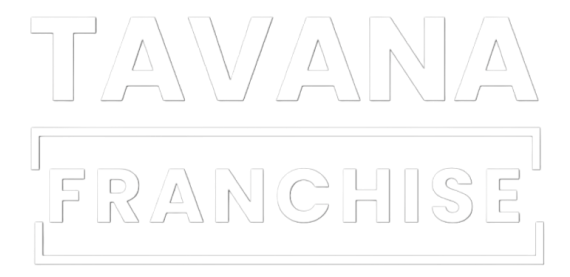Did you know franchising in Turkey is growing fast? Both local and international brands are joining the market. This growth is thanks to a detailed legal system. It includes laws on business, competition, and protecting consumers.
When you want to grow your business by franchising in Turkey, knowing the franchise laws in Turkey is key. The laws are made to protect both the person giving the franchise and the one getting it. They make sure the business environment is fair and competitive.
Key Takeaways
- Understand the legal framework governing franchising in Turkey.
- Familiarize yourself with general commercial law and competition law.
- Comply with consumer protection regulations.
- Navigate sector-specific legislation.
- Ensure your franchise agreement complies with Turkish laws.
Understanding Franchising in Turkey
In Turkey, franchising means using another company’s name and methods. This is what the Turkish Franchising Association says.
This idea is at the heart of franchising. It’s about a deal between the person running the business and the one who owns the rights.
Definition of Franchising
Franchising lets you run a business with a tested plan. It’s a smart way to start or grow a business.
The Turkish Franchising Association explains it well. They say it’s about using the franchisor’s name, methods, and business ideas.
Overview of Franchise Models
There are different ways to franchise. These include business format, product distribution, and conversion franchising.
- Business format franchising means using the franchisor’s whole business plan.
- Product distribution franchising is about selling the franchisor’s products.
- Conversion franchising turns an independent business into a franchise.
| Franchise Model | Description | Key Features |
|---|---|---|
| Business Format Franchising | Adopting the franchisor’s entire business system | Comprehensive business model, training, and support |
| Product Distribution Franchising | Distribution of the franchisor’s products | Product supply, marketing support |
| Conversion Franchising | Converting an independent business into a franchise | Brand rebranding, operational adjustments |
Importance of Compliance
Following Turkish franchising rules is key. It keeps your brand good and avoids legal trouble.
You must follow the Turkish Commercial Code and other laws about franchise deals.
If you don’t, you could face big fines or even lose your franchise.
Key Legal Framework Governing Franchising
Franchising in Turkey follows specific laws and rules. It’s key for both local and international franchisors to know these. This knowledge is crucial for entering the Turkish market.
Turkish Commercial Code
The Turkish Commercial Code (TCC No.6102) is a major law for commercial activities, including franchising. It sets out the main rules and what’s needed for businesses in Turkey. Franchisors need to understand the TCC to keep their operations legal.
Franchise Agreement Regulations
Franchise agreements in Turkey have their own rules. These rules make sure agreements are fair and clear. Franchisors must write agreements that follow Turkish law to avoid legal issues.
The Law on the Protection of Competition (Law No.4054) also impacts franchising in Turkey. It’s important for franchisors and franchisees to follow this law to avoid unfair competition.
Businesses should get legal advice on Turkish commercial law for franchising. This helps ensure everything from the agreement to ongoing operations meets the law.
Mandatory Franchise Disclosure Requirements
The Turkish Code of Obligations requires franchisors to share certain information with potential franchisees. This ensures franchising is transparent.
If you’re looking to become a franchisee in Turkey, you have the right to get detailed disclosure documents. These documents give you key information about the franchise opportunity. You’ll learn about the franchisor, the franchise system, and the terms of the agreement.
Information Required for Disclosure
Franchisors must give prospective franchisees detailed disclosure documents, as the Turkish Code of Obligations (TCO No.6098) requires. The documents should include:
- Background information on the franchisor and its business experience
- Details about the franchise system, including the number of existing franchises
- Terms and conditions of the franchise agreement
- Financial information, including initial fees and ongoing royalties
- Information about training and support provided by the franchisor
As a franchising expert notes, “Transparency in franchising is not just a legal requirement; it’s a foundation for building trust between franchisors and franchisees.”
“The disclosure document is a critical tool for prospective franchisees to make informed decisions about their investment.”
Timeframe for Disclosure
The Turkish Code of Obligations says franchisors must give disclosure documents to potential franchisees at least 30 days before signing the franchise agreement or paying any fees.
| Disclosure Requirement | Timeframe |
|---|---|
| Providing disclosure documents | At least 30 days before signing the franchise agreement |
| Updating disclosure documents | Annually or upon significant changes |
It’s important for you, as a prospective franchisee, to carefully review the disclosure documents. Understand the terms and conditions of the franchise agreement before making a decision.
Franchise Agreement Essentials
To have a successful franchise, a detailed franchise agreement is key. This agreement is a contract between the franchisor and franchisee. It outlines the terms and duties of both sides. It’s vital for a clear understanding of roles and responsibilities.
Key Components of a Franchise Agreement
A good franchise agreement should cover important points. These points protect both the franchisor and franchisee. Key components include:
- Brand Usage: How the franchisee can use the franchisor’s brand name and logo.
- Fees and Payments: Details on fees, royalties, and other payments.
- Territorial Rights: The area the franchisee can operate in.
- Training and Support: What training and support the franchisor will provide.
- Intellectual Property Licensing: Rules for using the franchisor’s trademarks and copyrights.
- Performance Standards: What the franchisee must achieve in sales and operations.
- Termination Clauses: When the agreement can end.
Obligations of the Franchisor and Franchisee
The agreement must clearly state what each side must do. The franchisor must provide training, support, and access to business systems. The franchisee must follow the franchisor’s rules, pay fees on time, and keep the franchisor’s business secrets.
By following these rules, both sides can build a successful franchise. The agreement must also meet legal requirements for franchising in Turkey. This ensures the agreement is legal and enforceable.
In summary, a well-made franchise agreement is crucial for success. It should include all necessary parts and clearly outline each party’s duties. This way, franchisors and franchisees can build a strong partnership.
Registration and Intellectual Property
Starting a franchise in Turkey means you need to understand the registration process well. It’s also key to protect your intellectual property. This is essential for keeping your brand safe and successful in Turkey.
Trademark Registration
Trademark registration is a must under Turkey’s Industrial Property Law (Law No.6769). It stops others from using your brand without permission. This helps keep your brand’s identity safe.
The process includes a search to make sure your trademark is unique. Then, you file an application with the Turkish Patent and Trademark Office.
Patent and Copyright Considerations
Protecting your patents and copyrights is also important. Patents cover your inventions, and copyrights protect your original work. This is crucial for your brand’s success.
“Protecting intellectual property is not just about legal compliance; it’s about securing your competitive edge in the market.”
To protect your intellectual property, you must know Turkish laws on patents and copyrights. You need to register and enforce these rights properly.
| Intellectual Property Type | Protection Law | Registration Authority |
|---|---|---|
| Trademark | Industrial Property Law (No.6769) | Turkish Patent and Trademark Office |
| Patent | Industrial Property Law (No.6769) | Turkish Patent and Trademark Office |
| Copyright | Copyright Law | Ministry of Culture and Tourism |
Franchise Fees and Payment Structures
When looking into a franchise in Turkey, knowing the fees and payment plans is key. Franchises charge different fees like initial fees, ongoing royalties, and marketing contributions.
Initial Franchise Fees
The initial fee is a one-time payment for the right to run a franchise. This fee changes based on the brand’s reputation and support from the franchisor. The initial fee is a big part of the franchise deal, so it’s important to understand it well.
For example, a famous international brand might ask for more money than a local one. The fee details should be clear in the franchisor’s disclosure document.
Ongoing Royalties and Payments
Franchisees also pay ongoing royalties to the franchisor. These are a percentage of their sales, paid regularly. Ongoing royalties are a big income source for franchisors and help with marketing and support.
Franchisees might also give money to marketing funds. The amount and how often you pay can change, so it’s important to know your financial duties.

| Type of Fee | Description | Typical Frequency |
|---|---|---|
| Initial Franchise Fee | One-time payment for the right to operate a franchise | One-time |
| Ongoing Royalties | Percentage of gross sales paid to the franchisor | Monthly/Quarterly |
| Marketing Contributions | Contributions to marketing funds for brand promotion | Monthly/Quarterly |
Knowing about franchise fees and payment plans is key for both sides. It helps you understand your financial commitments in Turkey’s franchising world.
Advertising and Marketing Regulations
To successfully franchise in Turkey, knowing the local advertising and marketing rules is key. Franchisors must follow the Turkish Competition Authority Communiqués. These guidelines cover fair competition and advertising practices.
Guidelines for Franchise Advertising
Franchise ads in Turkey must follow strict rules for fair play and consumer safety. Your ads must be honest, not misleading, and follow the Turkish Commercial Code.
Key Considerations for Franchise Advertising:
- Ensure accuracy and truthfulness in advertising claims.
- Comply with the Turkish Competition Authority’s guidelines on comparative advertising.
- Respect intellectual property rights in advertising materials.
Obligations Regarding Promotions
Promotions are vital in franchise marketing. In Turkey, they must follow the Turkish Competition Authority’s rules.
Obligations for Promotions:
| Obligation | Description |
|---|---|
| Transparency | Clearly disclose the terms and conditions of promotions. |
| Fairness | Ensure that promotions do not unfairly disadvantage competitors or deceive consumers. |
| Compliance with Communiqués | Adhere to the specific Communiqués issued by the Turkish Competition Authority regarding promotions. |
Experts say, “Following local rules is not just to avoid legal trouble. It’s about creating a trustworthy brand image.”
“The key to successful franchising in Turkey lies in understanding and complying with the local advertising and marketing regulations.”
By following these rules, your franchise’s ads and marketing will be both effective and legal in Turkey.
Termination and Renewal of Franchises
Termination and renewal clauses are key parts of a franchise agreement in Turkey. They explain when a franchise agreement can end or be renewed. This gives both the franchisor and franchisee clear rules and protection.
Grounds for Termination
The reasons for ending a franchise agreement are usually listed in the agreement. Common reasons include breach of contract, not meeting performance standards, or not paying fees. Knowing these reasons can help avoid legal issues.
A legal expert says, “Termination clauses must be clear to avoid confusion.” This clarity is vital for a good working relationship between franchisors and franchisees.
- Failure to follow the franchise agreement’s terms
- Not paying franchise fees or royalties
- Not meeting operational standards or business practices
Renewal Procedures and Requirements
Renewing a franchise agreement has its own steps and rules. Knowing the renewal terms and what to do before the agreement ends is important.
The renewal process usually includes:
- Looking over the current agreement for renewal clauses
- Telling the franchisor you want to renew
- Updating or changing the agreement’s terms if needed
“Starting the renewal process early is key to keep the franchise running smoothly,” experts say. This approach helps keep operations going without a hitch.
Understanding when a franchise can end and how to renew it helps you deal with franchise agreements in Turkey. This ensures you follow the legal rules for franchising.
Dispute Resolution Mechanisms
Franchisors and franchisees in Turkey need to know about dispute resolution options. Disputes can come from many areas, like territory, royalties, and contract terms. It’s key to understand these options to keep the franchise relationship strong.
Mediation and Arbitration Options
Mediation and arbitration are quicker and cheaper than going to court. Mediation uses a neutral third-party to help both sides agree. Arbitration has a neutral arbitrator make a final decision after hearing both sides.
In Turkey, mediation is growing as a way to solve business disputes, including franchising ones. The Turkish Commercial Code supports mediation by offering lower court fees for those who try it first.

Legal Recourse and Litigation
If mediation and arbitration don’t work, franchisors and franchisees might go to litigation. This means taking the dispute to court for a judge’s final say. In Turkey, commercial courts handle these disputes.
Litigation is long and expensive. It’s usually a last choice after trying other ways.
It’s smart for both sides to know their rights and duties in the franchise agreement and Turkish law. This includes understanding the franchise laws in Turkey and how they affect solving disputes.
Franchise Relations and Ethical Standards
In franchising, ethics and good relationships are key to success. In Turkey, franchisors and franchisees must understand the value of these. They need to keep relationships strong and follow ethical rules.
Maintaining Franchisee-Franchisor Relationships
It’s important for franchisors and franchisees to have a strong bond. This means clear communication, mutual respect, and following the franchise agreement requirements. Keeping each other updated on business and franchising regulations in Turkey builds trust.
Franchisors should support their franchisees with training and advice. This helps them run their businesses well. Franchisees must follow the franchisor’s rules and standards.
Ethical Considerations in Franchising
Ethics are crucial in franchising. Everyone must act with integrity and fairness. This means following franchising regulations in Turkey and keeping high ethical standards.
Some important ethical points include:
- Fair treatment of franchisees by franchisors
- Transparent information sharing as per franchise agreement requirements
- Respecting intellectual property rights
By focusing on ethics and building strong relationships, franchises in Turkey can thrive. They can also earn a good reputation in the market.
Recent Developments and Trends in Turkish Franchising
The world of franchising in Turkey is changing fast. New laws and global trends are shaping how businesses operate. It’s key to keep up with these changes to succeed.
Legislative Updates
The Turkish Commercial Code has seen some big changes lately. These updates make it clearer what franchisors and franchisees need to do. They aim to make doing business in Turkey easier for everyone.
Global Trends and Local Impact
Global trends are making a big splash in Turkish franchising. There’s a big push for digital and sustainable practices. Franchisors are working hard to meet these new standards.
By keeping an eye on Turkey’s franchise laws and global trends, you can stay ahead. This way, you can make the most of the opportunities in this exciting market.
